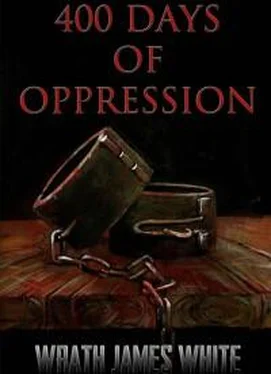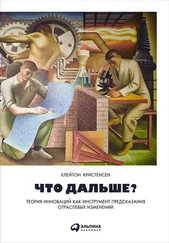The next car was practically empty, and I sat alone at the back, waiting for the ride to end. I called two more job listings in the Berkeley area while I was on the train. One was for a daycare provider at the University and the other was for a tutor. Finally, the train pulled to a stop at Berkeley station. I stood and walked out of the car as others rushed on. A woman with close-cropped hair, a black leather motorcycle jacket and “SAN FRANCISCO” tattooed on her neck in large gothic lettering smiled at me and said: “Cool tattoo!” Then an expression of perplexity crossed her face as she continued staring at the designs painted onto my skin, no doubt seeing the words for the first time. I thanked her and hurried past.
I hailed a taxi, gave the man the address and sank into the back seat, hiding my face and trying to avoid eye contact with the driver or do anything else that might encourage conversation. It was a wasted effort.
“What’s that on your face?” the driver said. He was a young Nigerian man with a thick accent. I didn’t look up to read his name badge on the dashboard of his car. I didn’t want to give him a better view of my face.
He was staring at me in the rearview mirror. I looked away.
“Please keep your eyes on the road,” I responded, and we drove the rest of the way in silence.
The house was in the Berkeley Hills, one of the most expensive neighborhoods in the Bay Area, comparable to Pacific Heights in San Francisco or “Specific Whites” as Kenyatta called it. The taxi driver dropped me off in front of a huge Victorian with large columns and a front porch the size of my last apartment. I approached the porch on shaky legs.
The doorbell sounded like a gong. All the moisture on my body seemed to have doubled as I waited for someone to answer. The door swung wide and an elegant woman in her forties wearing a Chanel pants suit, stood in the doorway, smiling wide in welcome. Her smile quickly fell from her face and all the joy left her eyes.
“May I help you?”
“Hi, I’m Natasha Talusa. I called about the position.”
I held out my hand and the woman looked at it like it was something that had floated up from a toilet.
“I’m sorry, the position has been filled,” she said and closed the door, leaving me standing on the front porch with my hand still outstretched, the fake smile still on my face. I turned and walked off the porch, sobbing. I had no idea what I was going to do.
I hit the two other jobs with similar results. At the university, the woman conducting the interview started laughing when she saw me.
“You’ve got to be kidding me? Did someone put you up to this?”
“No ma’am I—”
“This is a joke, right? Who put you up to this? One of the girls?”
“No ma’am. I have a degree in childhood education. I have an English degree. I worked for the San Francisco school district for five years—”
“Stop. Let me stop you right there. Sweetie, I cannot hire a woman with tattoos all over her face, no matter how many degrees you have. I’m sorry, but there’s just no way you can teach children with ‘Thief,’ ‘Addict,’ ‘Criminal,’ and…does that say ‘Slut’? There's just no way.”
“I understand. Thank you for your time.”
I walked out feeling lower than I ever had at any other time in the experiment. The obstacle Kenyatta had set before me this time was impossible. I rode the BART train back home in tears. What the hell was I going to do? Kenyatta wanted me out of the house in twenty-four hours.
I made it back to Kenyatta’s home ten hours after I left that morning. Kenyatta was there waiting for me, as was Angela.
“How did it go?”
“This is impossible! No one will hire me like this. I can’t get a job. So how am I supposed to get an apartment?”
Kenyatta leaned forward and stroked my hair then put a hand on my cheek.
“Then do what tens of thousands of freed slaves did before you. Go back to the plantation.”
The next morning, I decided to try it again. This time I lowered my expectations. I could take a waitressing job now and could always continue looking for a higher paying job that utilized my education while I was working.
I sat at the kitchen table with Kenyatta and Angela. I had slept in the shed again last night, once more relegated to slave quarters while Angela enjoyed all the comforts of home. Following my job-hunting ordeal, this second insult, and the idea that Kenyatta may have been fucking her was almost too much to take. I was quiet as I ate my eggs and bacon, seething in silent rage. Kenyatta tried again and again to draw me into a conversation.
“This is your last day. What did you decide to do? Are you going back to the plantation or are you going to try finding a job again?”
I didn’t answer, didn’t even look up from the plate.
“Did you hear me?”
I nodded.
“Well?”
“I’m not going back.” I still did not look at him.
“Well, good luck finding an apartment.”
I ignored the comment and kept eating. I heard Angela clear her throat to get Kenyatta’s attention. Out of the corner of my eye I saw her shake her head, trying to signal Kenyatta to back off. She could clearly sense that I was about to lose it.
“Well, I’m off to work. Goodbye, Kitten.”
I didn’t respond. Kenyatta reached out and grabbed my plate, pulling it away from me. With his other hand he seized my jaw and tilted my head up, trying to force me to look at him. I kept my eyes averted.
“I said, Goodbye! Look at me!”
I looked at him with all the hate I could muster. I was angry, and I wanted him to know that, but he would also know I didn’t hate him. My love was so much stronger than any anger I felt toward him. I met his eyes.
“It’s almost over, Kitten. Hang in there. You’ve been through too much to let this break you.”
And he was right of course. I had been through too much. This shouldn’t have been that bad after all I’d suffered, but it was precisely because I’d suffered so much that this last part was so difficult. The way that woman looked at me when she told me there was no job and closed the door in my face. How that woman had bluntly told me she’d never hire a woman with a tattoo on her face. Kenyatta had done well. If this is how blacks felt, the prejudice they encountered when they were trying to find a job to feed themselves and their families, it was no wonder so many turned to crime or languished on public assistance. This was completely demoralizing.
“You still want to be my wife?” Kenyatta said.
All the anger in me diminished instantly at the prospect.
“Y-yes, of course. Of-of course I do,” I said. An unexpected tear raced from my eye and Kenyatta leaned in and kissed it away. He kissed both eyelids, kissed my forehead, then planted one, long, soulful kiss on my lips that made my knees weak.
“Good luck today, Kitten. I love you.”
“I love you too, Kenyatta,” I replied.
I felt better, more resolved. As Kenyatta walked out the door, I was already preparing myself to do battle in the job market. Then Angela spoke up and ruined everything.
“You’re a fool, you know that right?”
“Angela, don’t.” I held up a hand to silence her.
“He’s playing you. You know you’re not the first white woman he’s done this to?”
I looked at her in shock.
“He didn’t tell you? You’re not the first, but you have come the farthest. Most quit in the box. He’s had to get real creative to keep challenging you. He never expected you to make it this far.”
I shook my head.
“I don’t believe you.”
But what she was saying made sense. Why would I have been the first? Did I think I was the first white woman he’d ever dated? Did I think I was the first one he’d ever loved?
Читать дальше










